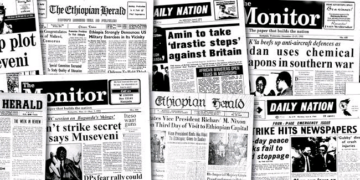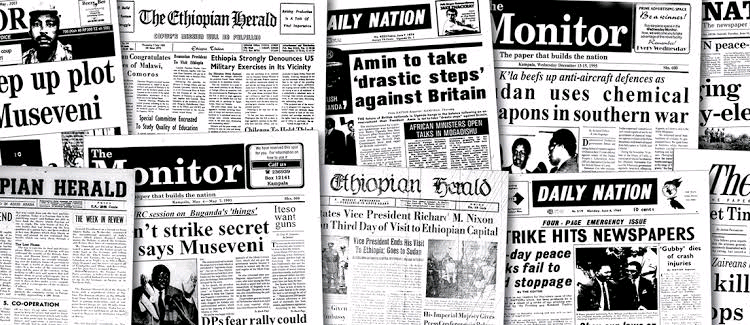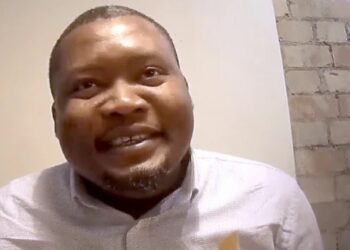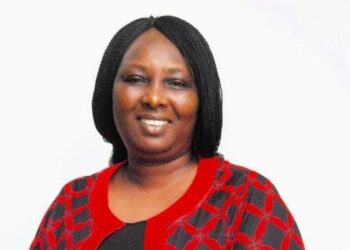Transparency and openness is the hallmark of any democratic institution. It is a distinctive feature that differentiates it from the military junta where the rights of the people to know is patently restricted and in most cases, denied by state authorities. Democratic government is called the “government of the people” for a reason, and it hinges on the right of the people to be part of the governance structure, and that inclusiveness implies a right to know. Ere-Ebi Agedah Imisi writes.
The media plays a vital role in bringing to the public glare information that would ordinarily be hidden by those in government. This is done through discreet investigation, which sometimes takes so much time and resources as well.
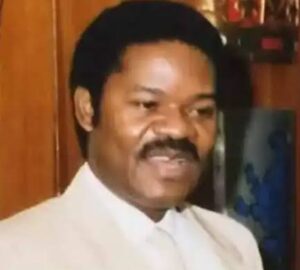
Dele Giwa easily comes to mind when talks about the role media plays in entrenching transparency is at the front burner. He was one of those who laid a solid foundation for other journalists to follow in playing their constitutional watchdog role, putting the government on its toes.
Adedokun Theophilus, a freelance journalist and community reporter (AbujaCommunity) has been in the business of digging out so many underreported stories and issues in the FCT, recounting his experience said ‘‘I just finished an environmental story right now and I discovered that three foreign companies are actually racking in over 70 billion in revenue.
‘‘They are just quarry companies breaking 70 billion annually, and the 70 billion annually is much more than the internally generated revenue of five states of the federation. Which means that these people are making big money. Yet they only give a little feedback to society.
‘‘During the course of my story, I was actually challenged by the traditional ruler of the community. He did not want to even answer my interview. He told me point blank that he wasn’t ready to answer my interview. He looked down on me.

‘‘Apart from that, he even at some point told me that I should pinpoint those who actually transpire and connive and those who I had interviewed for the story that I should pinpoint them out, remember that if I had done that, it would have been against the ethic of the profession, that would have been against the dunes of the profession so I didn’t because I would be putting their life on the line.
‘‘So, because it’s an environmental story, you’re doing this story, you’re digging up things. You are trying to unravel, you are trying to make people, you are trying to make people work. And these people are not, these people won’t be happy with you. These people won’t want to see you, they won’t see you as something that needs to live, that needs to survive.
‘‘It’s so saddening that after the work has been done, sometimes, journalists are not appreciated. Not saying they should give them money, no. But at least the work should be recognized. Sometimes, they are not recognized. Sometimes, organizations, especially in private companies, private profit-oriented media houses just leave out the journalists who actually face the consequences and the outcome of any story that has been written.
‘‘must say, there are a lot of issues, journalists are facing the heat and this is not only affecting the journalists a lot, it’s affecting the country as a whole because it boils down to how the international community views the country, freedom is being gaggled. They discover that journalists are being shackled, they will know that the country is not a place you can invest in, and the few spaces will be hijacked by some, hence gender disparity will thrive.
Independent Journalism is expensive
Mr. Emmanuel Obisue, the editor Heritage Times HT, an online Pan-African media platform in Utako shared his insights on these challenges during an interview with our correspondent.
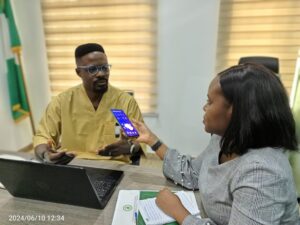
‘‘The media is undeniably crucial in ensuring government transparency. Our job is to inform the public about what the government is doing, both good and bad. However, it’s becoming increasingly challenging due to various factors, including political interference and financial constraints. Independent journalism is costly, and without sufficient funding, it’s hard to maintain the rigorous standards required for investigative journalism.
‘‘Recall the adage he who pays the piper detects the tune, yes it is disappointing when a journalist prioritizes financial gain over ethical journalism. Choosing to interview and promote a male politician solely because he offers substantial money, while ignoring a female political aspirant with a commendable reputation, but this is happening in our society.
‘‘How does a Journalist work month in month out without a take home salary and you expect such journalist to pursue very good human angle stories at gwagwalada when he resides in Apo village, it is possible but how does he fuel his car or pay transport to go pursue the story, what if he gets to gwagwalada and he is not able to complete the interview that day, how does he pay for a hotel and continue the work tomorrow, these are some of the questions that hinders inclusive journalism. Even during the elections you discover that some male politicians have more money to spend on the media and other avenues to increase their chances at winning but the women (who most times are more prudent with money) are not able to spend as much as their male counterparts, then it appears like some gender disparity but you must agree with me that the media is expensive. When it comes to elections and politics the media cannot control who wins or who the people vote for, what we can do is to increase the media presence of a particular candidate and to be candid some money must be spent to achieve this feat.
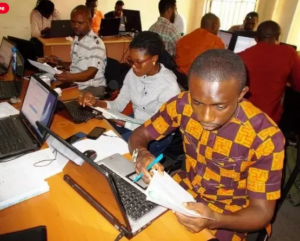
‘‘You might say such actions perpetuate gender bias and compromise the media’s role of holding the government on an inclusive government but you will agree with me that the media has done well in promoting every gender fight like the 45% affirmative action for women, most leadership at different levels consciously consider gender balance in their appointments, even Persons with Disabilities have been enjoying all this benefits which was projected by the media’’ He said.
On the impact of political pressure on journalistic integrity Mr. Obisue said Political pressure is a significant issue. Governments often try to control the narrative by limiting access to information or using advertising revenue as leverage. In extreme cases, journalists face threats or violence. This pressure can lead to self-censorship, where journalists avoid controversial topics to protect themselves and their jobs. This ultimately hampers the media’s ability to hold the government accountable.
The Legal Perspective
Mr Fatia Abiodun a legal practitioner divulged his perspective on the legal and societal implications of media transparency.

‘‘The legal framework to protect media freedoms and transparency is vast under the Freedom of Information Act. Nonetheless, regulation of this kind is often either implemented erratically or and enforcement mechanisms are sometimes inadequate. Furthermore, laws protecting journalists from harassment and violence are not always effectively applied.” He said
Who is to blame
Sharing his thoughts on who is to blame when transparency is lacking: the media or the government Mr. Abiodun said that transparency is a shared responsibility, the media must report the truth, and the government must ensure access to information and protect press freedom. When either fails, transparency suffers. Governments should not hinder journalism, and media organizations must uphold accuracy and integrity.
Comrade Bedford Benjamin, spokesperson for the Ijaw Youth Council, told our correspondent, “The media is to blame. Investigative journalism is lacking, and politicians often pay to cover their tracks. This practice is unacceptable. The media needs to improve.”

‘‘I will blame the media for poor inclusive government, when the media is compromised, you cannot get the best out of democracy. The consequence is what we are faced with in Nigeria, economic hardship and social injustice, and inequality that is what comes to bear when the media is not meeting up to its duties.
‘‘Also, the question of transparency in government is unnegotiable. Any meaningful government or any government that is ruling under true democracy must show that level of transparency for questioning, for transparent mode of operation, it is very key.
‘‘In terms of transparency, the media is expected to probe the seat of power to question and to ensure our leaders are accountable and inclusive particularly in but over the years we have seen that the media space as it were is owned and managed by the politicians themselves who play a major role in the setup of media houses.
‘‘The issue of truth management or the issue of managing information has bedeviled our media space in recent times. However, the media has to top up its game particularly in the area of investigation and the area of bringing statistics to bear, the Bureau of Statistics and other relevant agencies can assist the media in its work.
What are the consequences
Mr. Abiodun warned that a lack of transparency will prevent marginalized groups, such as women and people with disabilities, from participating in decision-making. This exclusion will lead to greater inequalities, leaving some feeling even more segregated and unheard. Without a voice in the process, their interests will not be represented, perpetuating their marginalization.
‘‘The consequences are far reaching, it can lead to civil unrest, for example the ENDSARS movement, the young people felt like they had lost their voices in the scheme of things, this can harm economic development. When a government lacks transparency, marginalized groups will be excluded from decision-making and it will worsen social inequalities.
‘‘After all said, corruption will thrive, the country will lack foreign investment and this will stifle economic growth, highlighting the need for transparent governance to ensure stability and inclusive development.
Moving Forward

After all said, openness and transparency in government are necessary for a truly inclusive society. As the fourth estate, media plays a pivotal role in holding government accountable. But when the media does not maintain that distinction, or engage in collusion with those who exercise coercive force, it forfeits its claims to public trust. On the other hand, governments that obscure their operations undermine democracy, while media complicity erodes public confidence. Blame lies with both unaccountable governments and a complicit media. Moving forward, robust investigative journalism and independent media are essential to ensure transparency and foster an inclusive government at all levels.
This investigative report is sponsored by the GENDER, THE AGENDA project for Gender Strategy Advancement International (GSAI), supported by Wole Soyinka Center For Investigative Journalism (WSCIJ), and the MacArthur Foundation.
